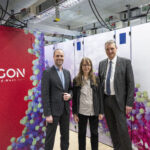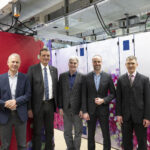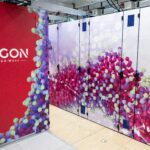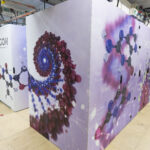At the beginning of 2026, after almost 10 years, we will are aiming to put a successor system into operation. Until then, we will continue to strive to ensure the smooth operation of the existing machines. MOGON II will have to be shut down no later than the release of a successor system. However, due to the increasing number of hard drive failures, we will have to decommission the current MOGON II file servers this summer.
There will be some changes for MOGON II users in the coming months.
Archive or move current project data - by August 2025 at the latest
All project managers are requested to archive or move their project data by August 2025 at the latest. Information on data archiving options can be found on our website. For projects running until the end of 2025, we will provide temporary storage space on the new file server.
Reapply for projects
You have three options for continuing your project.
1. For large projects (more than 6 million CPU hours), submit an application to NHR Süd-West.
- You must submit this three months in advance.
Example: For a project start on January 1, 2026, the application must be submitted to the JARDS application portal by October 1, 2025. Three months are necessary because two additional external reviews must be obtained.
You can submit your application at: https://jards.nhr-verein.de - Select the Mainz/Frankfurt cluster in the form: NHR@Süd-West (Frankfurt, Mainz).
For more information on the application process and using NHR resources, please visit:
https://www.nhr-verein.de/rechnernutzung
2. For normal projects (1 to 6 million CPU hours), submit an application to NHR Süd-West.
- You can submit your application at: https://jards.nhr-verein.de
Select the Mainz/Frankfurt cluster in the form: NHR@Süd-West (Frankfurt, Mainz).
For more information on the application process and using NHR resources, please visit:
https://www.nhr-verein.de/rechnernutzung
3. For small projects (under 1 million CPU hours) submit an application for the MOGON KI cluster.
https://hpc.uni-mainz.de/application/
Our support
No matter what you decide, the contact persons and support will remain the same. We will advise and support you in the coming weeks and months with your potential move and the application process. We will provide assistance and answer your questions in our various support offerings:
- HPC Café | every last Thursday of the month at 10 a.m.
https://docs.hpc.uni-mainz.de/docs/help/hpc-café/ - Q&As | every Thursday 10:00 - 11:00 a.m.
https://docs.hpc.uni-mainz.de/docs/help/hpc-qa/






